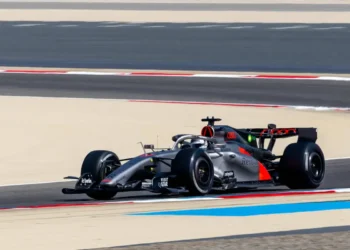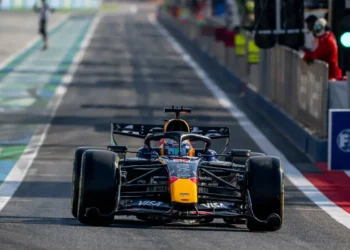FIA President, Mohammed Ben Sulayem, has suggested that Formula 1 (F1) should contemplate reverting to V10 engines, but with a twist – these engines should be powered by sustainable fuel. This proposition comes amidst the sport’s transition to a more sustainable future, with plans to use fully synthetic fuel from next year onward.
This shift in fuel type is a part of a larger change in F1’s engine formula. The new blueprint will see a near-equidistant split between the power derived from a V6 internal combustion engine and an upgraded MGU-K electric motor. This modification means that the electric motor will be more potent, thereby contributing to an increase in the overall performance of F1 cars.
Ben Sulayem’s suggestion to revisit V10 engines, albeit with eco-friendly fuel, is an intriguing one. It merges the raw power of the past with the sustainability of the future, offering an interesting potential path for the sport.
In essence, the new engine formula aims to balance power and sustainability. By integrating a more potent electric motor, F1 continues to drive forward in its commitment to reducing its carbon footprint. Meanwhile, the use of synthetic fuel reinforces this commitment further, as it is a more environmentally friendly option compared to traditional fuels.
The idea of reverting to V10 engines running on eco-friendly fuel is sure to stir up conversations amongst F1 enthusiasts and stakeholders alike. Whether it will become a reality, only time will tell. However, the fact that it is being considered at all highlights the sport’s continuous effort to marry performance with environmental consciousness. This ongoing commitment to sustainability underscores the forward-thinking approach of F1, even as it contemplates revisiting elements of its past.










